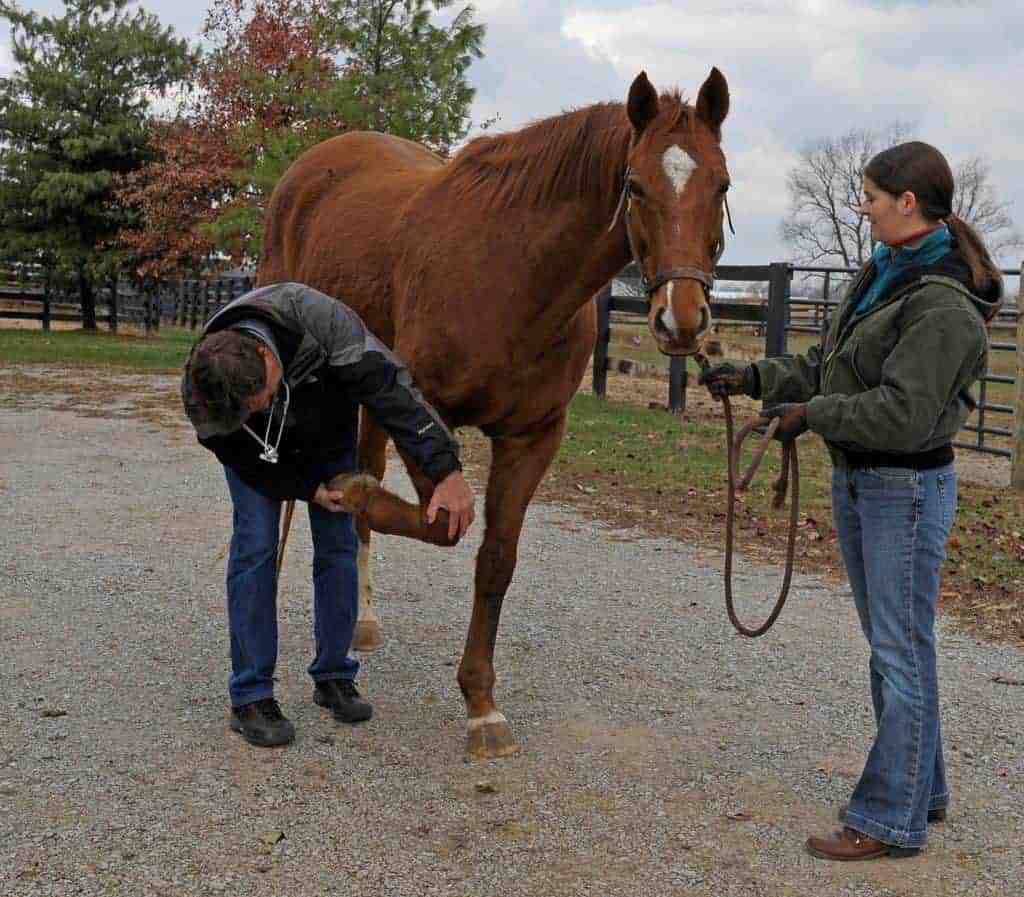Pawing Prevention for Horses
A reader looks for help for their laminitic horse who hates being stall-bound.
A reader looks for help for their laminitic horse who hates being stall-bound.
This year he started displaying stallionlike behavior when the mares he’s

Research indicates that one-sided imprint training is not might not be as beneficial as once thought.

Nutritional support could reduce the stresses and health challenges that weaning places on young horses.
Dr. Sue McDonnell talks about what makes a reliable nurse mare.
An analysis of cribbing research provides information about the behavior and suggests preventative measures.
Dr. Sue McDonnell answers a reader’s quesion about foal imprint training.

Researchers examined if using a herdmate as a training partner for a young horse beneficial in the long run.

The results of a recent study suggest that bits could cause bone spurs and dental damage in some horses.
The New Bolton Center is pleased to offer three equine short courses focusing on reproduction and behavior.

What can vets and owners do to make veterinary visits less stressful for the horses and people involved?
Why should foals eating feces be classed as normal behavior when the foal is obviously lacking some nutrient?
Is it possible to feed to improve a horse’s behavior?
How do you design a feeding program that mimics how horses’ feeding habits have evolved?
According to a recent study, doing some at-home preparations could aid horses in staying calm when faced with
Does a horse’s daily job affect his or her personality? A a group of French researchers recently used ethology
Stay on top of the most recent Horse Health news with
"*" indicates required fields